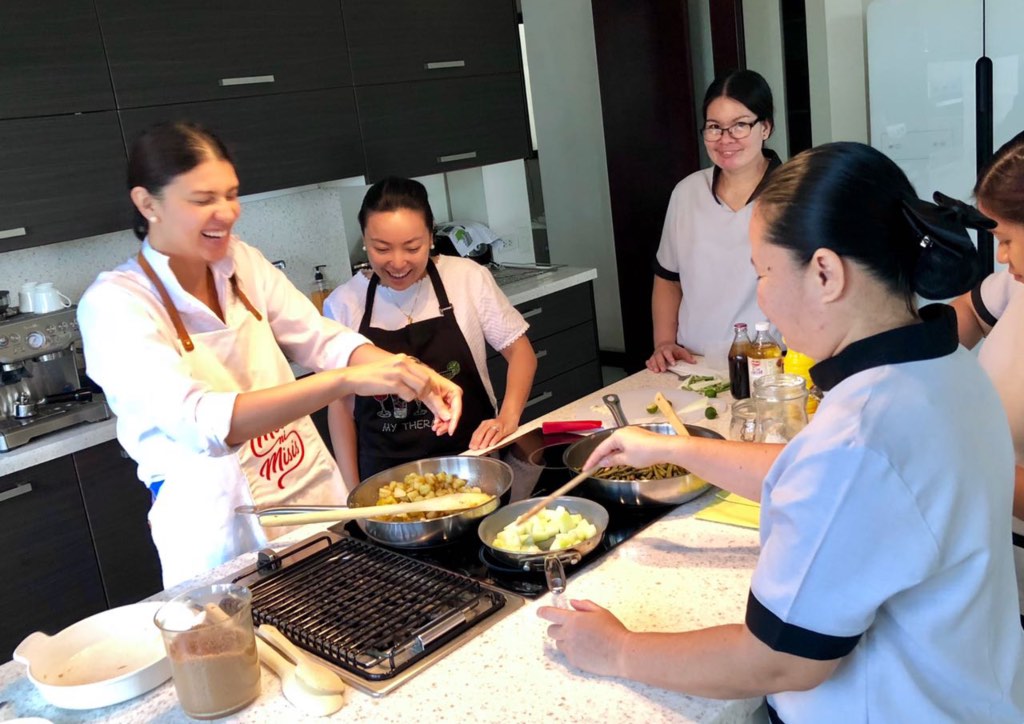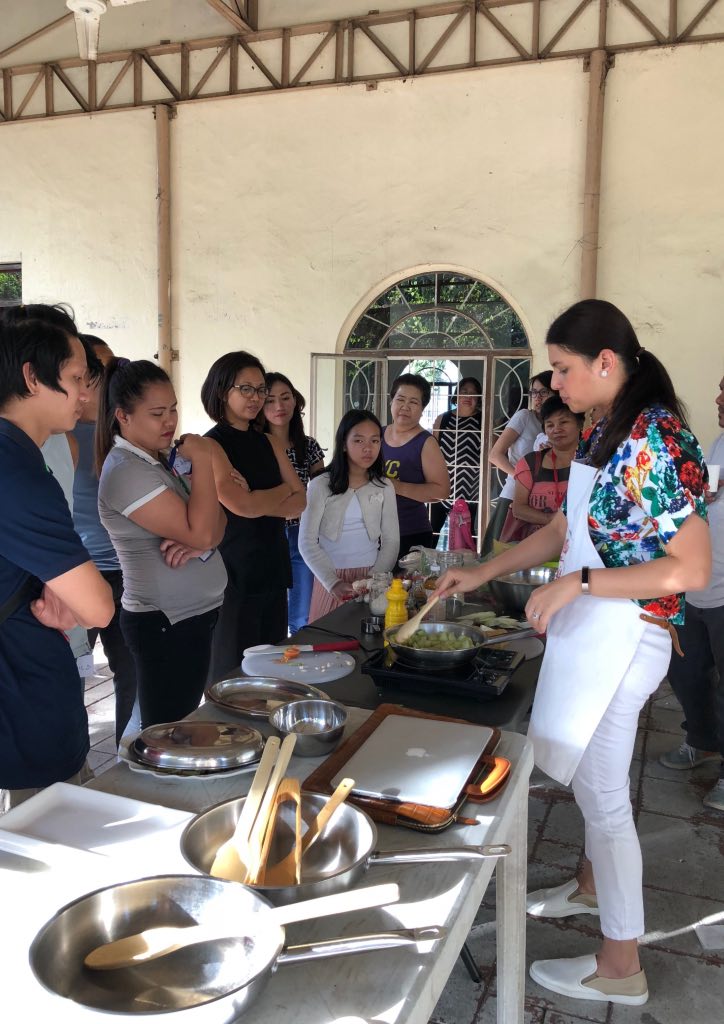Mesa Ni Misis has been in the making for over two years. The idea stemmed from my frustration that healthy cooking was costing me so much. Many of the recipes I would find online required fresh ingredients that are not readily available in the Philippines, and if they were, came at a high price.
I first started reading about the benefits of local fruit and vegetables when I was breastfeeding my son eight years ago. All the leafy greens, such as malunggay and saluyot, had all the properties to increase breast milk. I wondered why growing up, we never ate that many Filipino vegetables.
A few years ago, our family driver of over 30 years fell gravely ill due to poor food choices and suffered from diabetes that was causing him to go blind. As he was sick for many months and could not drive, his family also suffered. He restored his health by changing his eating habits and eventually healed himself. Today, he is back at our family home, driving again. It was living proof that food can reverse illness.
RELATED READS: 5 Healthy Food Establishments for Clean Eating This 2019

Going Local
The perception of eating local has a lot to do with how Filipinos think society views them. People in the lower income brackets are the ones who use formula milk and milk substitutes when feeding their babies, when they are the ones least able to afford them. Why? In the documentary Fed Up, former New York Mayor Michael Bloomberg sums it up perfectly, “The people who are least able to know what’s good for their health are the ones certain industries should cater to and try to focus their advertising towards.”
Similarly, in higher income brackets, people have also been programmed to think that the western superfoods such as kale, broccoli, chia, and maca are superior to what we have in our own country. The truth is that our own superfoods are just as good, if not better. The problem is that no one talks about it, and they haven’t been promoted in large scale media. Ever since kale became a popular food, farmers abroad have had to multiply their production of the crop. In the Philippines, our local farmers have next to nothing because no one consumes the crops they produce, because it is not talked about or consumed.
I also noticed that many less fortunate people get sick by preventable diseases, such as high cholesterol and diabetes, which lead to complications. All of these illnesses start with lifestyle. The Philippines is the number one meat eating country in Asia, and as a direct result of that, also one of the top countries wherein its residents die because of non-communicable diseases. Too much oil, fat, starch, sugar and alcohol take a toll on our bodies. Cheap and instant food that are readily available by ‘tinge’ or piecemeal serve the underprivileged because of the way they earn. Most people earn daily wages anywhere from P250 to P500 per day, and budget their food according to what is brought home. They opt for instant food or low quality, questionable meat.
RELATED READS: Chef and Entrepreneur Happy Ongpauco-Tiu Launches Mom Made, Healthy and Delicious Frozen Food Products for Busy Moms


Teaching Sustainability
With Mesa Ni Misis, we bust myths and old wives tales that many do not know. Our recipes are largely plant based. Why? Because plants are the source of nutrients and have many healing properties, and are an affordable and sustainable food source. P250 for a family of four can go a longer way with meals made with plant-based ingredients over meat from a questionable source. In our seminars, we introduce concepts such as macro-nutrients, portioning, and basic nutrition. Of course, some recipes include Filipino favorites such as patis, toyo, and maybe the occasional bagoong—used in moderation, because what would home cooking be without that?
Aside from recipe sharing, we also aim to provide livelihood programs for the Misis or woman of the house, so she can provide an income without having to leave her family. Mesa Ni Misis is a proud partner of Soap for Hope, a program run by one of the world’s largest companies, Diversey. We collect soap from hotels and take them to communities where people can turn the soap into new bars of soap to sell or use themselves. We save at least one ton of soap from sitting in the landfill, while also helping augment people’s incomes. We are currently working with The Raffles, Fairmont and City of Dreams.
This is the reason why Mesa Ni Misis exists—to love local food, grow local food, and nourish our families with what has been so bountifully given to us. That, in turn, helps the people who grow our food. We aim to teach people to live sustainably and help improve their quality of life.
For more information, visit <mesanimisis.com> or follow Instagram @mesanimisis and Facebook: MesaNiMisisPH
RELATED READS: The Art of Holistic Healing: How a Health Scare and Lifestyle Change Inspired Denise Celdran’s Two Thriving Businesses





